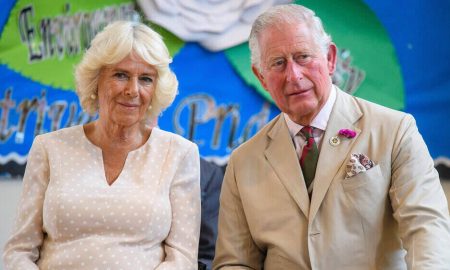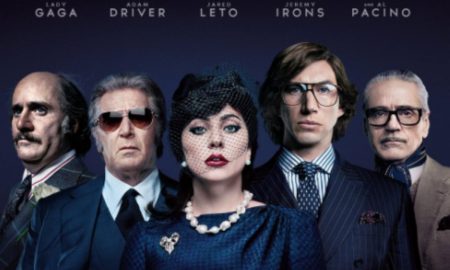
8 Wisest Money Quotes Which Will Change Your Life

Many wise heads have been talking about money spending throughout many decades, even centuries. Still, people seem to have many doubts concerning their attitude towards this life’s necessity. Additionally, the 21st century has brought some new aspects of money spending like impulse buying which additionally make things difficult to understand.
Let’s see what many wise people have said about money.
Benjamin Franklin

vlad_star/Depositphotos
”Money has never made man happy, nor will it, there is nothing in its nature to produce happiness. The more of it one has, the more one wants.”
Benjamin Franklin (1706-1790) was one of the Founding Fathers of the United States and a famous inventor. He was often poor in his lifetime and thus had enough time to think wisely about money spending.
Ralph Waldo Emerson
“Money often costs too much.”
Ralph Waldo Emerson (1803-1882) was an American poet and philosopher, a champion of individualism. He lost his father as a child and was raised by his mother. His health was not very good, so he traveled to many places in search of a better climate. Since he didn’t have time to settle down in one place, we may say that this statement came as his rebellion towards his overall state and towards capitalism generally.

georgios/Depositphotos
William Shakespeare
“Neither a borrower nor a lender be, for loan oft loses both itself and friend, and borrowing dulls the edge of husbandry.”
This is a quote from Shakespeare’s play ‘Hamlet.’ Those are the words that a father is saying as advice to his son. He advises his son not to loan money to other people since it can be dangerous. Sometimes, people don’t return the money, and you may lose a friend because of the failed transaction. On the other hand, it is distasteful to borrow money since it is impolite and shows that you are living outside of your means.
Eleanor Roosevelt
“He who loses money, loses much; He who loses a friend, loses much more; He who loses faith loses all.”
Eleanor Roosevelt (1884-1962) was an American politician, activist, and the longest serving the First Lady of the United States. She was also called the “First Lady of the World” because of her human rights achievements.
James W. Frick
“Don’t tell me where your priorities are. Show me where you spend your money, and I’ll tell you what they are.”
This quote was uttered by James W. Frick (1924-2014), a former vice president for public relations at the University of Notre Dame. The statement best describes people’s tendencies to spend more money on the things they care about. For example, many smokers will rather buy cigarettes than newspapers or even milk and eggs. This tendency can only show what people’s priorities in life are. On the other hand, someone would rather buy a book than food.
Malcolm Forbes

robert1598/Depositphotos
“I made my money the old-fashioned way. I was very nice to a wealthy relative right before he died”
Malcolm Stevenson Forbes (1919-1990) was an American entrepreneur and publisher of Forbes magazine. After his father’s and brother’s death, he got a full control of the magazine Forbes and made it a full-time job. The magazine was in the family’s ownership until Malcolm’s death from a heart attack back in 1990. Then his son Steve Forbes became editor in chief, but the business is not in his ownership.
The Beatles
“For I don’t care too much for money, for money can’t buy me love.”
These are the lyrics from The Beatles’ song called ‘Can’t Buy Me Love’ released in 1964. The lyrics suggest that the things which cannot be bought with money are more valuable than the money itself.

s_bukley/Depositphotos
Billy Idol
“It doesn’t matter about money; having it, not having it. Or having clothes, or not having them. You’re still left alone with yourself in the end.”
Billy Idol (1955-) is an English musician known for his rebellious songs. In this quotation, he suggests that it all depends on how you view your objects and priorities.
Generally, people who depend entirely on money are often carried away into helplessness and self-destruction. On the other hand, those who treat money as something that one could easily lose are likely to control money before it controls them. Above all the things mentioned above, it is a human being who has to decide upon his own actions and beliefs towards money spending.
More in Luxury
-
`
Camilla Bowles & Prince Charles Ask People to Remember The Elderly This Holiday Season
Every year as the holiday season begins, we rush to the shopping centers and wait in long queues just to grab...
December 27, 2021 -
`
Baby Mama Olivia Munn Welcomes First Child With John Mulaney
You might think that this is wholesome news and there is nothing problematic about it – but guess again! As it...
December 23, 2021 -
`
Being A Feminist – The Dad Version
Feminism – an ideology that works to establish social, personal, economic, and political equality of humankind. In this day and age,...
December 22, 2021 -
`
Starting a Business Can Be Overwhelming–Here’s How You Can Get Over Your Fears & Start Building Your Company
Successfully building a business from the ground up, is not an achievement that all people can claim to have done. It...
December 22, 2021 -
`
Too Busy Working as a Corporate Executive to Manage Your Finances? These Are The Simple Steps You Can Take Today
Corporate executives often find themselves in an interesting predicament. After they’ve managed to put in the work to nab the high-paying...
December 21, 2021 -
`
Leonardo DiCaprio Buys a $9.9 Million Beverly Hills Mansion
Leonardo DiCaprio is no stranger in the world of Hollywood – and if you don’t know him, what have you been...
December 17, 2021 -
`
Kevin Hart Drops $7 Million on The Property Next to His Calabasas Mansion
People often say that kindness is making someone laugh, even if it’s only for a moment. Well, going by that logic,...
December 8, 2021 -
`
Two Decades Worth Of Jennifer Aniston’s Real Estate Grabs – Take A Look!
Jennifer Aniston! Who doesn’t know and love the superstar who breathed life into iconic characters like Rachel Green, Rosie Dickinson, Rose...
December 7, 2021 -
`
Let’s Hear it For The Long-Awaited Film, House of Gucci
Have you watched the House of Gucci yet? The movie has got to be one of the most anticipated ones of 2021 –...
December 1, 2021















You must be logged in to post a comment Login